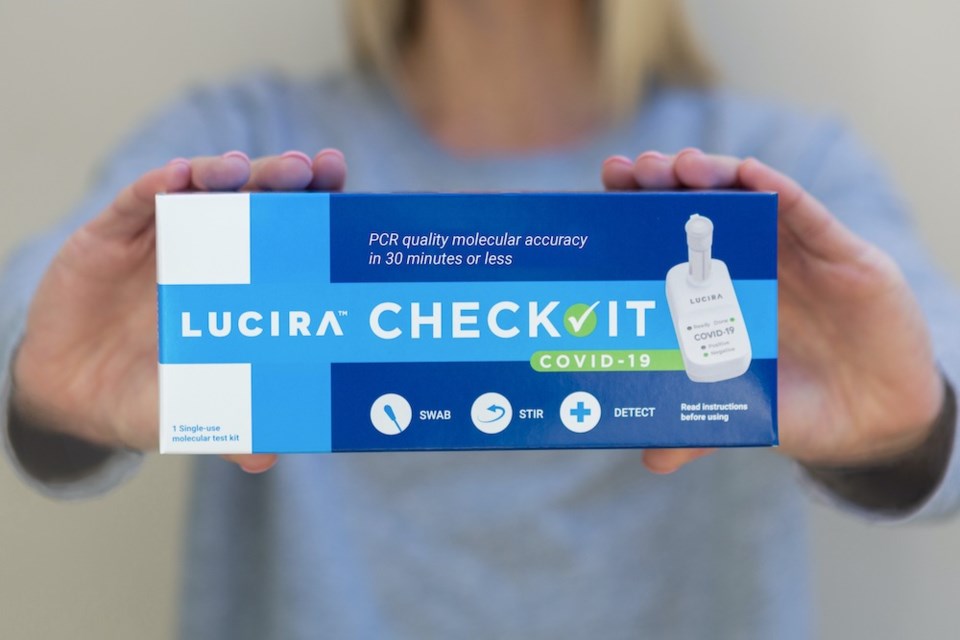Wouldn't it be nice if you could test yourself for COVID-19 from the comfort of your own home?
Health Canada recently approved the first COVID-19 test for self-testing at home, which would allow people with or without symptoms to test themselves for the virus.
The Check-It COVID-19 test kit is said to deliver PCR quality molecular accuracy in 30 minutes or less at home and is expected to be available online for Canadians to order by June 2021 for approximately $75 CAD, excluding applicable taxes and delivery charges.
According to the manufacturer, medical technology company Lucira Health, Inc., the test kit is "a single-use test kit containing everything needed to conduct one COVID-19 test that can detect a positive result in as few as 11 minutes or confirm a negative result within 30 minutes."
The kits are designed for individuals to use independently and do not "require a physician’s prescription or telehealth / supervised assistance."
But B.C.'s top doctor says there are several factors to consider about self-testing kits.
"Limited usefulness in certain situations."
On Thursday (May 27), Provincial Health Officer Dr. Bonnie Henry told reporters in the daily coronavirus briefing that the kits have only recently been approved in the country.
"What we hear from our colleagues is that [there's] a little bit of limited usefulness in certain situations," she said. "Where I do think it is important and where we will be continuing to increase the use of rapid testing is to support people getting back to work settings, communal living settings — so we've been using them as you know, very effectively in places like our correctional facilities."
Henry noted that rapid testing has been useful in identifying when someone who is sick is entering a communal living situation, such as when people enter correctional facilities.
"It helps us understand right away, whether it's COVID that we're dealing with or not. So that's where they are most effective right now is identifying clusters and outbreaks early and we're using them in a variety of situations to do that," she said.
Henry added that the BCCDC "is leading a group that's been working with businesses as well to see where these might be useful" as they reopen in the coming weeks.
Ultimately, however, the provincial health officer underscored that rapid testing and self-testing cannot replace PCR testing. "I think it is a good adjunct or added-on piece to the core of our testing which is the more accurate PCR testing," she said.



